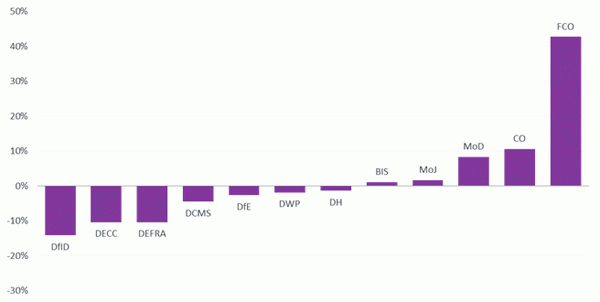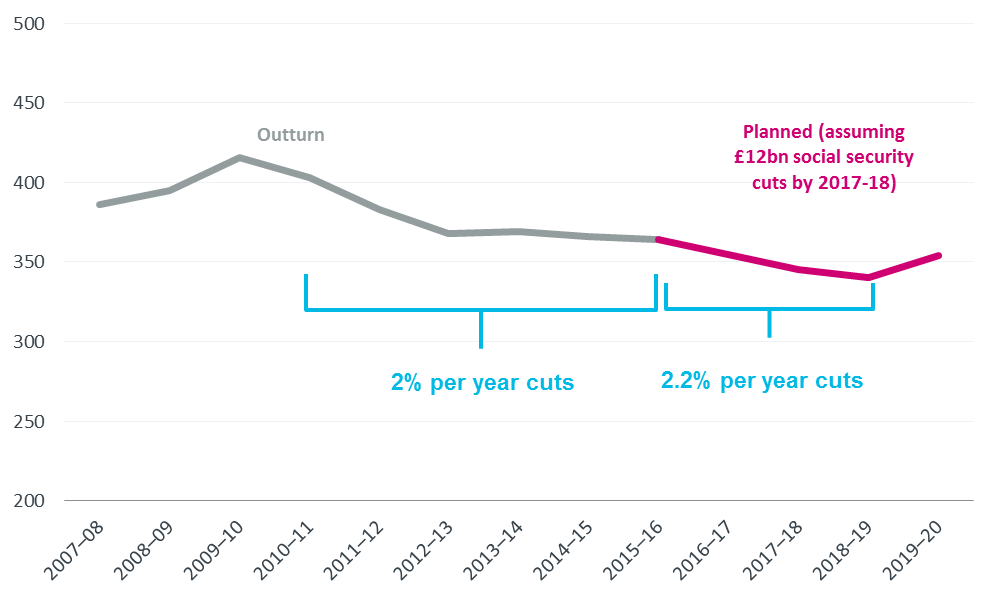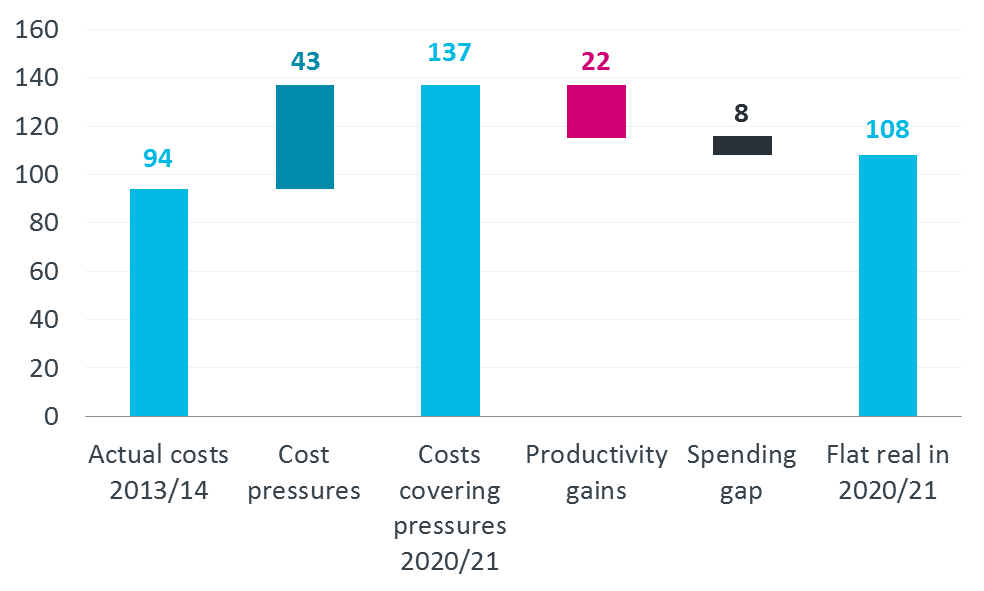Yesterday the Institute for Government and the Institute for Fiscal Studies held a joint event to examine the coming Budget and Spending Review. Both Julian McCrae, IfG, and Carl Emmerson, IFS, were clear that the challenges faced in 2015 far outweighed those of 2010.
“Were people who voted Conservative actually misled?” asked Ben Chu of the Independent. “The description of [cutting] £1 out of every £100 Government spends risked misleading people” replied Carl Emmerson of the IFS, diplomatically. As Whitehall prepares for another Spending Review, the IFS and the IFG held a joint event to get to outline exactly what is happening in this latest phase of fiscal consolidation. Before the election, David Cameron had sounded confident about the practicality of further cuts. The manifesto stated that Conservative plans meant cutting spending by just 1%: “we don’t think there’s a business that couldn’t do that – and we don’t think government, when it is spending your money, should be any different.”

Julian McCrae, Jill Rutter and Carl Emmerson at the event
Carl Emmerson argued that this confidence was misplaced. Protections to some Government budgets – Education, Health and International Development – mean that greater cuts are needed elsewhere. In total, unprotected budgets will face cuts of 15% in the next two years. Taking into account the previous phase of austerity under the Coalition, these departments are likely to undergo a total cut of 30% between 2010 and 2018. One of the reasons that Government has been bullish about its ability to find these savings is its record in implementing the 2010 Spending Review plans. Julian McCrae explained that not only had Government largely stuck to its spending forecasts, but it had done so without the widespread perception that there had been a loss in the quality of services.
Figure 1: % difference between 2013/14 DEL outturn and 2010 Spending Review plans, showing most departments on track or actually underspending on the 2010 plans.

But the message from both speakers was that 2015 is different. Efficiencies that were easy to deliver have already been made. The cost of delivering public sector pensions continues to rise. And, as McCrae explained, there is increasing pressure on our public services such as the NHS. It is clear that 2015’s Spending Review is going to be a more challenging process than in 2010. Carl Emmerson set out some of the areas where Government will have to focus its attention. A small amount of work has already been done on the election pledge to cut £12bn from the welfare budget. Reducing the benefit cap, freezing working age benefits in between 2016 and 2018 and removing housing benefit from 18-21 year-old JSA claimants has shaved about one tenth off the target. But with David Cameron now pledging to protect child benefit, finding the further £10bn in just two years will be highly challenging. To put that figure in context, it took the Coalition five years to take £15bn out of the welfare budget. Meanwhile Government departments will be asked to cut faster than under the Coalition. Unprotected departments saw their budgets shrink by an average of 2% per year over the last Parliament – that will accelerate to 2.2%.
Figure 2: IFS analysis showing departmental spending (£bn) in the next Spending Review

Finding those cuts will be challenging, so the Government has to ensure that they are done in a way that is politically sustainable, argued McCrae. In the last Parliament, the Government won the argument on the necessity of cuts but lost the argument on fairness. And in 2015, there is not the same external pressure from markets to cut spending in order to secure lower borrowing costs. As Julia Goldsworthy, a former Treasury special adviser, pointed out from the floor, operating with a majority of 12 further increases the pressure to produce a Spending Review that can be implemented in a politically sustainable way. When cuts are laid out in legislation, they have a habit of getting smaller as they pass through the House of Commons. And in the discussion, the idea of looking at so-called “tax expenditures” – reductions in tax designed to achieve policy ends as a substitute for spending – came up. McCrae agreed with the recent Public Accounts Committee recommendation that these tax expenditures should be considered as part of the Spending Review.
One area where it seems inevitable that we will see cuts is the Whitehall headcount. McCrae was clear that cutting and strengthening Whitehall will need to go hand in hand. It is important that Whitehall has the skills that will be necessary to implement the reforms that will inevitably flow from the Spending Review. In response to a question from the floor by Paul Johnson of the IFS, McCrae also said he thought the strengthening of the Government Finance Profession, which the Treasury took responsibility for in 2013, was making much needed progress. But Government also needs to ensure that the Spending Review is more than just a spreadsheet exercise in the Treasury: forecasts for spending cuts need to be backed up with credible plans for implementation. NHS England was an example of the potential success of such an approach. Before the election, Chief Executive Simon Stevens ran an internal process to model future costs for the NHS and set these against ambitions for productivity increases. He found an £8bn shortfall by 2020/21 against a planned flat real budget. Stevens secured that £8bn from all the main political parties as a pre-election pledge. In truth, the Spending Review for NHS England is already over.
Figure 3: NHS England’s forecast of increasing cost pressures, ambitions for productivity gains and the £8bn spending gap which was secured as a pre-election political commitment.

The conclusions from both speakers did not risk misleading people. The challenges in the 2015 Spending Review 2015 will be far greater than in 2010. Cuts will accelerate and be harder to find. Many public services are already stretched. The Spending Review will have to devise proper plans for implementation and do so in a way that is politically sustainable. But if the Conservatives fail to close the deficit over the next Parliament, then the Institute for Government has already committed to put on a re-run of this event in five years’ time.
- Topic
- Public finances
- Keywords
- Budget Public spending Austerity Spending review
- Political party
- Conservative
- Administration
- Cameron government
- Publisher
- Institute for Government